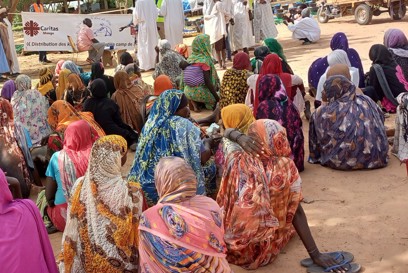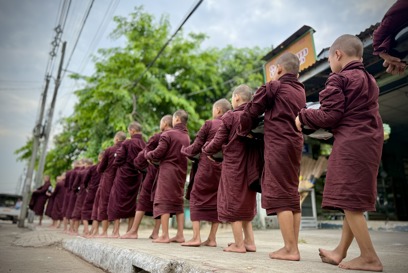A catastrophic 7.7 magnitude earthquake struck Myanmar on 28 March 2025, its epicenter was in the Sagaing Region near the centre of Myanmar. There were at least 20 fatalities at a mosque in Mandalay, and Naypyidaw Airport's air traffic control tower collapsed, killing all staff on duty.
Hundreds are feared dead in Myanmar, with a 1,000 bed hospital in Naypyidaw now a mass casualty area. Mandalay General Hospital is full and no longer admitting patients.
Myanmar is already facing a severe humanitarian crisis, with 19.9 million people – more than a third of the population – in need of assistance. The earthquake has exacerbated these challenges, putting additional strain on the country's resources and response capabilities.
A state of emergency has also been declared in Bangkok, Thailand, where the earthquake has also had an impact. Buildings have collapsed and at least one person has been killed. Damage and casualties are still being assessed.
Caritas Australia is supporting on the ground through its partners in Myanmar. These partners are assessing the situation, and preparing a response to the humanitarian requirements, which are likely to include emergency shelter, food, and other essentials, as well as psychosocial support.
All colleagues in Myanmar are also safe but some staff houses in Mandalay have collapsed. The Mandalay Diocese reported that many people are still missing in Mandalay Town and people cannot contact their family due to communications being down.
Sally Thomas, Humanitarian Manager at Caritas Australia said, “In the immediate aftermath of an earthquake we tend to see emergency services battling against destroyed infrastructure and struggling to move tons of rubble to save lives. Roads may be blocked and hospitals may be damaged, all of which hampers recovery efforts. We have also had limited contact with those on the ground due to infrastructure damage.”
“People often fear successive earthquakes too, especially in places like Myanmar where they are common. People will be wondering if the ground will begin shaking again and be trying to figure out where they might find safety. Affected populations will also start to need basics quickly – water, food, shelter, medicine, clean clothes, and blankets – as they focus on finding their loved ones and keeping their families safe.”

















